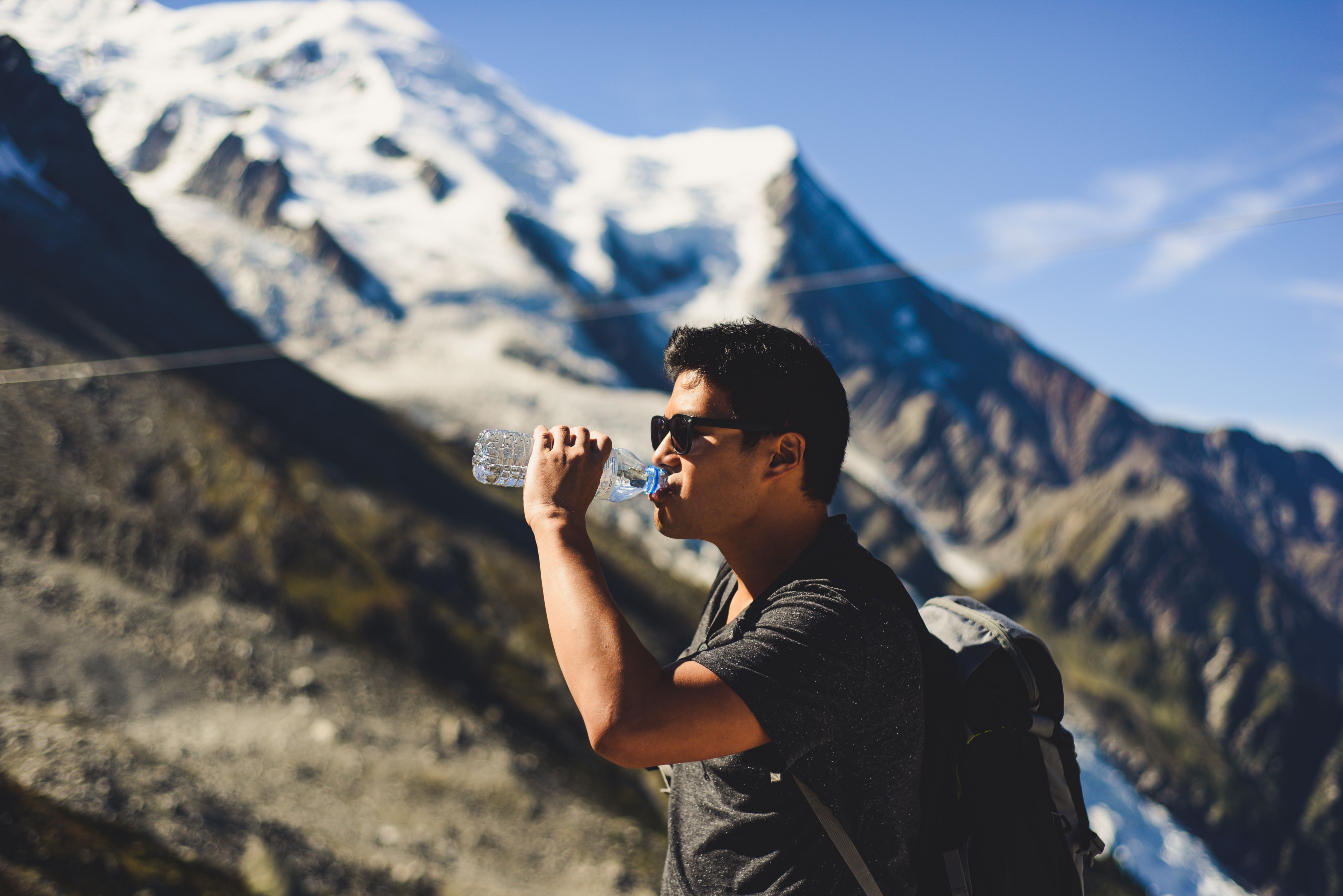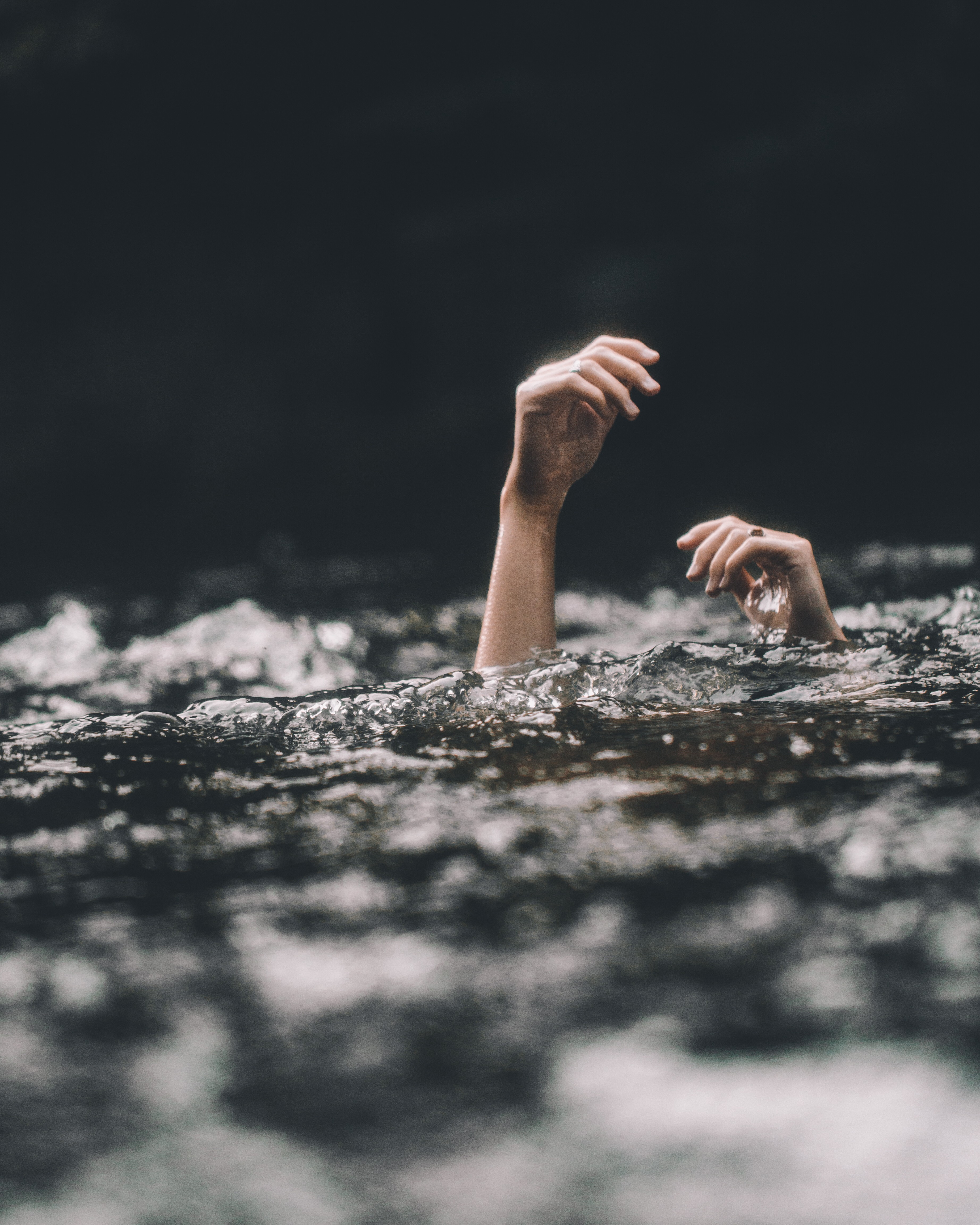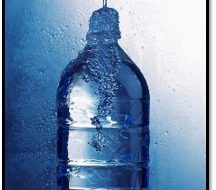And more importantly, should you??
 Tom Brady enjoying one of his apparently many, many drinks of water. Image source.
Tom Brady enjoying one of his apparently many, many drinks of water. Image source.
Tom Brady, quarterback of the New England Patriots, widely considered to be one of the greatest quarterbacks of all time, has a message for you: drink more water.
A lot more water. In fact, if you want to keep up with Brady?s own water intake, you?re going to need to consume 37 glasses of water per day.
That?s a lot of water.
How much? For context, imagine a gallon jug of water. Imagine you?re holding a gallon jug of water in each hand. Imagine that you drink BOTH of those gallons ? and then you drink another third of one, just for kicks.
Or, if you?ve ever seen an office water cooler, complete with a blue five-gallon reservoir mounted on top? Imagine pouring out half of that ? and then drinking the entire other half.
Where?s this come from? In a book he wrote in 2017, the Patriots six-time Superbowl champion stated that he drank ?half his body weight in ounces [of water] each day, and double that amount when exercising.? Brady states that he drinks up to 300 ounces of water each day when he exercises ? that?s about 2.3 gallons.
Now, this definitely seems to be working for Brady; I don?t have even a single Superbowl ring, so I can?t challenge him on his results.
But for the rest of us, should we be drinking that much water ? or could this leave us drowning in health problems?
What Happens If I Drink Too Little Water?
 Some of us, not content to simply drink water in our own homes, prefer to go out and do ?extreme water drinking?. Photo by Bit Cloud.
Some of us, not content to simply drink water in our own homes, prefer to go out and do ?extreme water drinking?. Photo by Bit Cloud.
Most of us know that ?not drinking enough water? = ?bad?.
When we don?t drink enough water, we get dehydrated (which simply means ?without water?). Since our bodies are 60% water, and we lose water all the time, we start running into problems when we are losing water without replenishing our supply.
There are a few different ways that our bodies lose water, including:
- Sweating. Water comes out of pores in our skin, to cool us off by carrying heat away through evaporation.
- Urination. We need water to carry waste products (extracted from our bloodstream by our kidneys) to our bladder, and then out of our body.
- Breathing. We need to keep our lungs moist so they don?t dry out. If the humidity in the air is below 100%, some of that water will evaporate and be lost when we exhale.
Overall, we lose about 2 liters (slightly more than half a gallon) of water per day.
If we don?t take in enough water, by either drinking or eating water-rich foods, such as fresh fruits and vegetables, we become dehydrated. Dehydration leads to a number of different effects, including vomiting and diarrhea, fatigue and dizziness, confusion, seizures, and a drop in blood volume (which can put us in shock and be life-threatening).
Overall, dehydration is bad, and we should take in enough water. But what if we swing too far in the other direction?
What Happens If I Drink Too Much Water?
 ?Aargh! Too much water ? I can?t drink myself out of this ocean!? Photo by Blake Cheek.
?Aargh! Too much water ? I can?t drink myself out of this ocean!? Photo by Blake Cheek.
Normally, drinking excess water (more than 2 liters per day) doesn?t cause any problems. It helps balance out excess water loss (such as if you?re doing strenuous work and sweating heavily), and extra water is simply expelled from the body via urination.
However, it?s always possible to have too much of a good thing ? and that includes water! Drinking too much water leads to overhydration, where you?re taking in more water, faster, than your kidneys can expel!
If you overload your body with water, you?ll experience nausea, vomiting, confusion, and headache.
The real problems, however, happen when too much water gets into your blood.
Your bloodstream keeps a delicate balance of ions, including sodium, potassium, calcium, and others. This is needed to keep blood at the same density as the insides of cells, so there can be open exchange between cells and the bloodstream.
When you have too much water, however, excess water flows from your bloodstream into your cells, making them swell up as they attempt to equalize. This condition is called hyponatremia, and is characterized by low blood sodium (because it?s been watered down).
Hyponatremia can lead to death, especially if neurons are affected. Your muscles have room to swell up if they are flooded with water, but your brain doesn?t. A swollen brain is called a cerebral edema, and can cause coma, seizures, or death.
The GOAT Doesn?t Have Science On His Side
So too much water is bad, and can even be life-threatening ? but here?s Tom Brady, out there and apparently drinking FOUR TIMES as much water as the typical male requires. Are the Patriots in danger of losing their star QB to overhydration?
Brady may be doing enough strenuous exercise to sweat out most of this excess water, but his approach isn?t backed up by science. There are two ?drink lots of water? rules that are often discussed ? both of them mostly bunkum.
The first rule suggests that the average person should drink eight glasses of water a day. The second rule, the one that Brady alludes to, suggests that a person should drink half their body weight in ounces of water. A 200-lb man, under this rule, would drink 100 ounces of water.
While they might be good-intentioned, these rules have three major flaws:
- They don?t include water that?s in food (a cucumber is 96% water), and they also don?t include the water content that?s in other beverages, such as coffee or tea.
- They don?t scale properly. These may work for people at lower weights, but they end up recommending ridiculous amounts of water for overweight or obese individuals.
- Most importantly, they?re not based on science! There are many studies that look at water intake and hydration level, but the overall consensus is that water intake is variable and personalized, and there?s no one rule that will work for all individuals.
There are massive, in-depth scientific reviews that examine the recommended water intake. Their conclusion:
Despite numerous efforts to define a state of euhydration and determine the daily water requirements of children, men, women, and older adults, no empirical research provides definitive answers and no universal consensus exists.
Researchers have also looked into the ?8 glasses of water per day? rule. They state that ?No scientific studies were found in support of 8 x 8. Rather, surveys of food and fluid intake on thousands of adults of both genders, analyses of which have been published in peer-reviewed journals, strongly suggest that such large amounts are not needed because the surveyed persons were presumably healthy and certainly not overtly ill.? They also observe that caffeinated and mild alcoholic drinks (such as coffee or beer) should be included. They end by stating that, while they?re not saying that 8 glasses/day is bad for everyone, it shouldn?t be taken as an ironclad rule.
“Drink at least eight glasses of water a day.” Really? Is there scientific evidence for “8 x 8”?
Am J Physiol Regul Integr Comp Physiol. 2002 Nov;283(5):R993-1004. Review
www.ncbi.nlm.nih.gov
Drinking water is important. The average person can only survive 3?7 days without water, depending on their location, physiology, and whether they?re eating water-rich foods.
However, like everything else in life, overhydration can be just as bad as dehydration. Drinking too little water can be deadly, but so can drinking too much water. The best advice is to drink water whenever you?re thirsty ? and a bit more than that on top, aiming for slightly more than 2 liters (half a gallon) per day.
Tom Brady may drink massive amounts of water, but he is also not the average, mostly sedentary human adult. Chugging multiple gallons of water per day won?t turn you into a star quarterback ? and could even put your life at risk.
Sam Westreich holds his PhD in genetics, focusing on methods for studying the gut-associated microbiome. He currently works at a bioinformatics-focused startup in Silicon Valley. Follow on Medium, or on Twitter at @swestreich.
Have a science-related question? Comment to suggest a topic for my next story. Or check out this related story:


